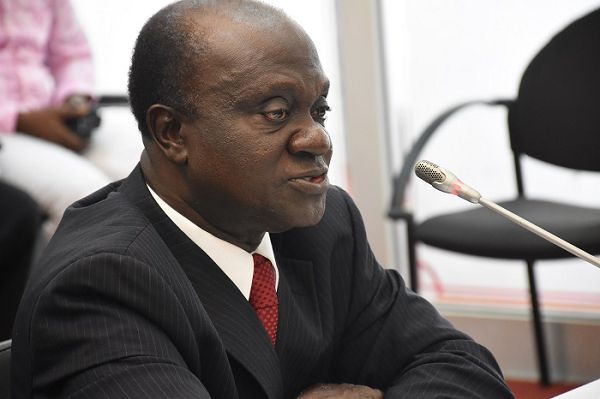
Doing the most good for every Cedi spent
The Ghanaian economy has been growing swiftly, with remarkable GDP growth higher than five per cent for two years running.
This robust growth means added pressure from special interest groups who demand more public spending on certain projects.
But like every country, Ghana lacks the money to do everything that citizens would like. It has to prioritise between many worthy opportunities.
What if economic science and data could cut through the noise from interest groups, and help the allocation of additional money, to improve the budgeting process and ensure that each cedi can do even more for Ghana?
Cost benefit
Cost-benefit analysis – an approach that uses rigorous, cross-sector analysis to establish what could be achieved by spending additional money in different areas – is rarely used by any government in the world in a broad, transparent fashion.
Why? Because it requires large numbers of academics, well-organised inputs and the collection of considerable data, and because it creates analytical results that can upset some vested interest groups.
The world-renowned think tank, Copenhagen Consensus Centre, has been working to improve this situation and introduce a rational, data-driven input to countries’ priority-setting; working so far in Bangladesh, Haiti, and India.
In India, the Centre collaborates with Tata Trusts, the nation’s oldest philanthropy. In Bangladesh it works with BRAC, the world’s biggest NGO. In Ghana, it has teamed up with the award-winning think tank, Institute of Economic Affairs (IEA).
In Ghana, we would work with stakeholders across every vital area – from education and healthcare to environment, agriculture and infrastructure – to find dozens of the most promising policies, reflecting the unique concerns and challenges facing Ghana.
Then the best national and international economists would work diligently to estimate costs and benefits for these proposed policies.
In Accra, we would then invite some of the best Ghanaian and international economists to review all the proposed ideas to find the most effective policies for Ghana’s future.
This would be similar to what Copenhagen Consensus has done for several states in India or what it did in Bangladesh, where three leading national scholars and a Nobel laureate met for three days and interviewed all of the researchers.
They identified remarkable investments, including increased investment in tuberculosis (TB) treatment.
TB causes one in every eleven Bangladeshi deaths yet it is a cheap disease to treat, with benefits to society worth more than 20 times the cost of testing and treatment.
The economists highlighted the value of investing in digital procurement, to improve oversight of the money Bangladesh spends annually on everything from new hospitals to pencils.
The finance minister embraced the solution, as the investment would reduce government costs by an average of 12 per cent, making resources available in the budget for other priorities.
Copenhagen consesus analysis
Elsewhere, too, spending decisions have been improved by the judicious application of Copenhagen Consensus analysis.
The Haitian government, with support from USAID, launched the country’s first food-fortification project as a result of our research.
The former UK Prime Minister, David Cameron, cited our findings when G8 leaders announced GH¢17 billion (£2.8 billion) would be spent to end undernutrition. The former Colombian president cited our evidence on biodiversity when he and neighbouring leaders quadrupled the size of a marine reserve.
The Danish government spent millions more on HIV/AIDS based on Copenhagen Consensus findings.
Benefits?
What could such a project achieve for Ghana? The country has huge opportunities ahead – but also challenges which could impact prosperity if not navigated carefully.
Ghana is undertaking great efforts to diversify its economy, but like in many nations, the economy can still be buffeted by changes in commodity prices. Which investments and settings could best help businesses to thrive?
Like other middle income countries, chronic non-communicable diseases have overtaken infectious diseases as the biggest health care burden.
At the same time, reducing malaria and maternal mortality still remain public health concerns, and rural‐urban disparities on vital issues such as infrastructure or access to education and health care need to be overcome to ensure all Ghanaians benefit from the positive economic development.
What investments will make sure these challenges are addressed in the most efficient manner?
Whether we look at these challenges, or at how to improve public services, how to reduce plastic pollution in Accra, the swiftest way to continue Ghana’s reduction in poverty, or the best approach to expand education and social assistance programmes to all, cost-benefit analysis can help focus attention on the investments that would have the biggest impact.
Ghana priorities project
A “Ghana Priorities” project would not just highlight smart policies in specific areas, but would produce a menu of spending options.
Of course, not all proposals will be politically palatable and attract public interest – but many will, and those smart programmes can help budgets go even further.
Showing where each cedi does the most good does not offer the last word in budgetary decision-making or supplant politicians; it merely ensures that citizens and politicians are better informed.
In Ghana’s new 2019 budget, spending will increase by 27 per cent or GH¢15.6bn.
Imagine if just two per cent of this increase would be spent even more effectively because of the Ghana Priorities research.
That would, over the next decade generate social benefits larger than the entire Ghanaian GDP last year.
That is a conversation worth having.
Dr. Bjorn Lomborg is President of the Copenhagen Consensus Centre and Dr Charles Mensa is Chairman of the Institute of Economic Affairs (IEA).
